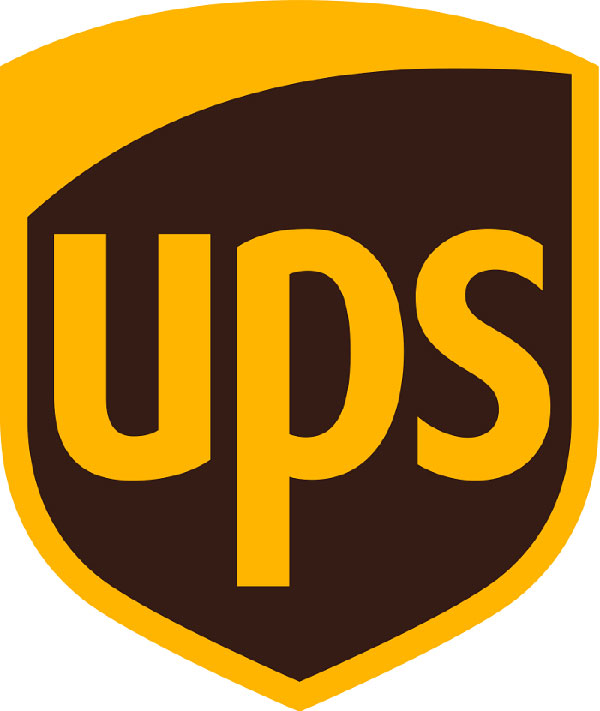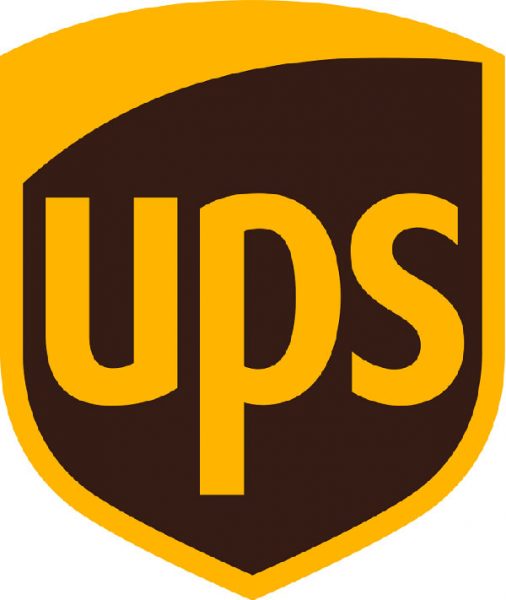· International Revenue and Operating Profit Climb 15%
· Average Daily Exports grew 12%, Led by Europe and U.S. Trade Lanes
· Supply Chain & Freight Operating Profit up 14% on 16% Revenue Growth
· U.S. Domestic Revenue Rises 7.2% on 4.6% Volume Growth
· Weather Conditions Muted First Quarter U.S. Domestic Results
· Cash from Operations of $4.1B Resulted in Free Cash Flow* of $2.6B
· Reaffirms Full-Year 2018 Adjusted EPS Guidance
ATLANTA – April 26, 2018 – UPS (NYSE:UPS) today announced that first-quarter 2018 earnings per share rose 17% to $1.55, led by double-digit operating profit growth in both International and Supply Chain and Freight segments. “Top-line growth in our business was strong across all business segments, reflecting the power of UPS’s global solutions and continued favorable economic conditions,” said UPS Chairman and CEO David Abney. “When combined with our transformation initiatives, these favorable trends position UPS for strong returns going forward.”
| Consolidated Results |
1Q 2018 |
1Q 2017 |
% Change |
|
| Revenue |
$17,113 M |
$15,510 M |
10% |
|
| Net income |
$1,345 M |
$1,166 M |
15% |
|
| Diluted earnings per share |
$1.55 |
$1.33 |
17% |
For the total company in 1Q 2018:
· Total revenue increased 10% to $17.1 billion, on strong demand for UPS solutions.
· Average yield increased by 4.3%, led by International and U.S. Deferred Air products.
· UPS rewarded shareowners by increasing dividends per share by nearly 10% over the prior year, and distributing $840 million during the quarter.
· To support investment strategies the company made capital expenditures of $1.5 billion.
· The lower effective tax rate reflects a more competitive U.S. tax structure, some discrete tax items and includes the impact of share-based compensation.
· First quarter results include the adoption of new accounting standards for pension and revenue recognition. Prior-period results were also recast to reflect these changes.
* Information on non-GAAP financial measures is attached to this press release.
U.S. Domestic Segment
The U.S. Domestic segment experienced strong demand as customers increasingly chose UPS solutions. Both unexpected and planned items weighed on operating profit for the segment during the first quarter.
|
1Q 2018 |
1Q 2017 |
|
| Revenue |
$10,227 M |
$9,536 M |
| Operating profit |
$756 M |
$950 M |
For the U.S. Domestic segment in 1Q 2018:
· Revenue increased to $10.2 billion, up 7.2% over 1Q 2017. Revenue improved across all products, signaling the strong market demand for UPS solutions.
· Revenue per piece increased 2.6% as higher base-rate pricing and fuel surcharges offset headwinds from customer and product mix.
· Operating profit includes headwinds from severe winter weather of $85 million, Saturday deployment, network projects and higher pension expenses.
International Segment
“The execution of our diversified global strategies and our investments produced double-digit growth in revenue and profit,” said Abney. “Each of our International regions is contributing to our financial gains, and we expect this strong momentum to continue.”
|
1Q 2018 |
1Q 2017 |
|
| Revenue |
$3,533 M |
$3,074 M |
| Operating profit |
$594 M |
$518 M |
For the International segment in 1Q 2018:
· International revenue increased 15% despite two fewer operating days in many countries. Currency-neutral revenue increased 8.7%.
· Export, Domestic and Cargo product groups all achieved double-digit revenue growth.
· Export shipments per day grew an average 12% as premium products continue to outpace non-premium.
· Export volume growth in Europe and the U.S. continued to be strong for the quarter.
· Operating profit was $594 million, up 15% on higher Export shipments and expanded product yields. Currency-neutral operating profit increased 10%.
* Information on non-GAAP financial measures is attached to this press release.
Supply Chain and Freight Segment
The Supply Chain and Freight segment produced another quarter of strong financial results. Revenue and operating profit grew by double digits due to successful revenue-quality initiatives, opportunistic growth strategies and structural cost reductions.
|
1Q 2018 |
1Q 2017 |
|
| Revenue |
$3,353 M |
$2,900 M |
| Operating profit |
$170 M |
$149 M |
For the Supply Chain and Freight segment in 1Q 2018:
· Revenue increased to $3.4 billion, up 16% over 1Q 2017. The business units focused on high quality, middle-market customers.
· The Forwarding business led all units with 27% revenue growth, as revenue management initiatives and stable market conditions drove top-line gains.
· UPS Freight revenue increased 9.9% on solid LTL (less-than-truckload) pricing and tonnage growth.
· Operating profit was $170 million, up 14% from the same quarter in 2017.
Outlook
The company provides guidance on an adjusted (non-GAAP) basis because it is not possible to predict or provide a reconciliation reflecting the impact of future pension mark-to-market adjustments or other unanticipated events, which would be included in reported (GAAP) results and could be material.

“Our focused business strategies are producing strong results in both the International and Supply Chain segments,” said Richard Peretz, UPS’s chief financial officer. “The benefits from our investments, new multi-year transformation efficiencies and stronger pricing position us well for shareowner value creation.”
· UPS expects 2018 adjusted diluted earnings per share to be in a range of $7.03 to $7.37.
· The company projects free cash flow of $4.5 billion to $5.0 billion in 2018.
· The effective tax rate should be in a range of 23% to 24% for the remainder of the year.
· Capital expenditures in 2018 are planned between $6.5 billion to $7.0 billion.
Conference Call Information
UPS CEO David Abney and CFO Richard Peretz will discuss first-quarter results with investors and analysts during a conference call at 8:30 a.m. ET, April 26, 2018. That call is open to others through a live Webcast. To access the call, go to www.investors.ups.com and click on “Earnings Webcast.”
Forward-Looking Statements
Except for historical information contained herein, the statements made in this release constitute forward-looking statements within the meaning of Section 27A of the Securities Act of 1933 and Section 21E of the Securities Exchange Act of 1934. Such forward-looking statements, including statements regarding the intent, belief or current expectations of UPS and its management regarding the company’s strategic directions, prospects and future results, involve certain risks and uncertainties.
Certain factors may cause actual results to differ materially from those contained in the forward-looking statements, including economic and other conditions in the markets in which we operate, governmental regulations (including tax laws and regulations), our competitive environment, changes in the facts or assumptions underlying our health and pension benefit funding obligations, negotiation and ratification of labor contracts, strikes, work stoppages and slowdowns, changes in aviation and motor fuel prices, cyclical and seasonal fluctuations in our operating results, and other risks discussed in the company’s Form 10-K and other filings with the Securities and Exchange Commission, which discussions are incorporated herein by reference.
Reconciliation of GAAP and non-GAAP Financial Measures
We supplement the reporting of our financial information determined under generally accepted accounting principles (“GAAP”) with certain non-GAAP financial measures, including, as applicable, “as adjusted” operating profit, operating margin, other income (expense), pre-tax income, net income and earnings per share. The equivalent measures determined in accordance with GAAP are also referred to as “reported” or “unadjusted.” Additionally, we periodically disclose free cash flow, free cash flow excluding discretionary pension contributions, as well as currency-neutral revenue, revenue per piece and operating profit.
We consider quantitative and qualitative factors in assessing whether to adjust for the impact of items that may be significant or that could affect an understanding of our ongoing financial and business performance or trends. Examples of items for which we may make adjustments include but are not limited to: amounts related to mark-to-market gains or losses (non-cash); settlement of contingencies; gains or losses associated with mergers, acquisitions, divestitures and other structural changes; charges related to restructuring programs; asset impairments (non-cash); amounts related to changes in tax regulations or positions; pension and postretirement related items; and debt modifications.
We believe that these non-GAAP measures provide additional meaningful information to assist users of our financial statements in understanding our financial results, cash flows and assessing our ongoing performance because they exclude items that may not be indicative of, or are unrelated to, our underlying operations and may provide a useful baseline for analyzing trends in our underlying businesses. Management uses these non-GAAP financial measures in making financial, operating and planning decisions. We also use certain of these measures for the determination of incentive compensation award results.
Non-GAAP financial measures should be considered in addition to, and not as an alternative for, our reported results prepared in accordance with GAAP. Our non-GAAP financial information does not represent a comprehensive basis of accounting. Therefore, our non-GAAP financial information may not be comparable to similarly titled measures reported by other companies.
Currency-Neutral Revenue, Revenue per Piece and Operating Profit
We supplement the reporting of our revenue, revenue per piece and operating profit with similar non-GAAP measures that exclude the period-over-period impact of foreign currency exchange rate changes and hedging activities. We believe currency-neutral revenue, revenue per piece and operating profit information allows users of our financial statements to understand growth trends in our products and results. We evaluate the performance of our International Package and Supply Chain and Freight businesses on a currency-neutral basis.
Currency-neutral revenue, revenue per piece and operating profit are calculated by dividing current period reported U.S. dollar revenue, revenue per piece and operating profit by the current period average exchange rates to derive current period local currency revenue, revenue per piece and operating profit. The derived current period local currency revenue, revenue per piece and operating profit are then multiplied by the average foreign exchange rates used to translate the comparable results for each month in the prior year period (including the period over period impact of foreign currency revenue hedging activities). The difference between the current period reported U.S. dollar revenue, revenue per piece and operating profit and the derived current period U.S. dollar revenue, revenue per piece and operating profit is the period over period impact of currency fluctuations.
Free Cash Flow
We supplement the reporting of cash flows from operating activities with free cash flow, a non-GAAP liquidity measure. We believe free cash flow is an important indicator of how much cash is generated by regular business operations and we use it as a measure of incremental cash available to invest in our business, meet our debt obligations and return cash to shareowners. We calculate free cash flow as cash flows from operating activities less capital expenditures, proceeds from disposals of property, plant and equipment, and plus or minus the net changes in finance receivables and other investing activities.




